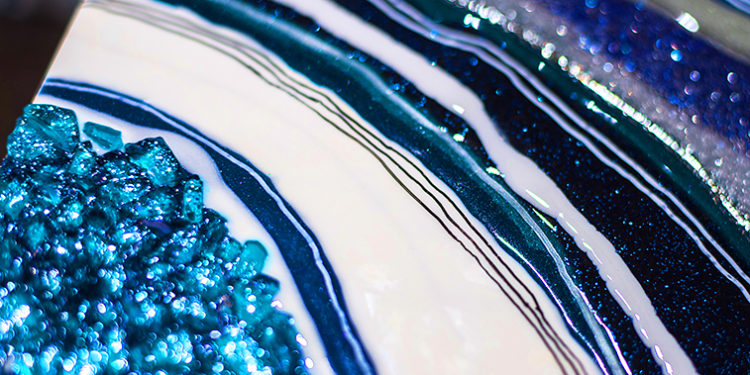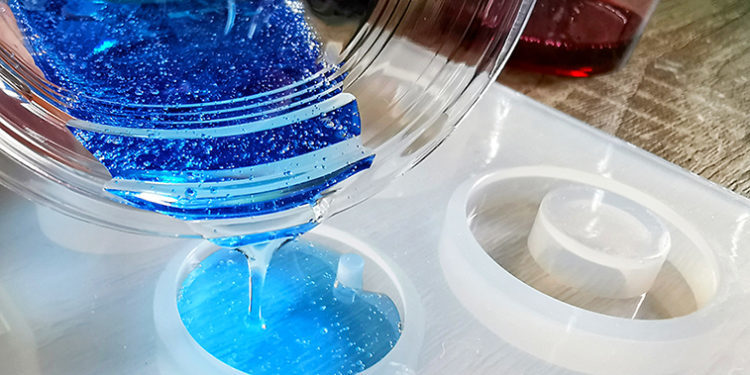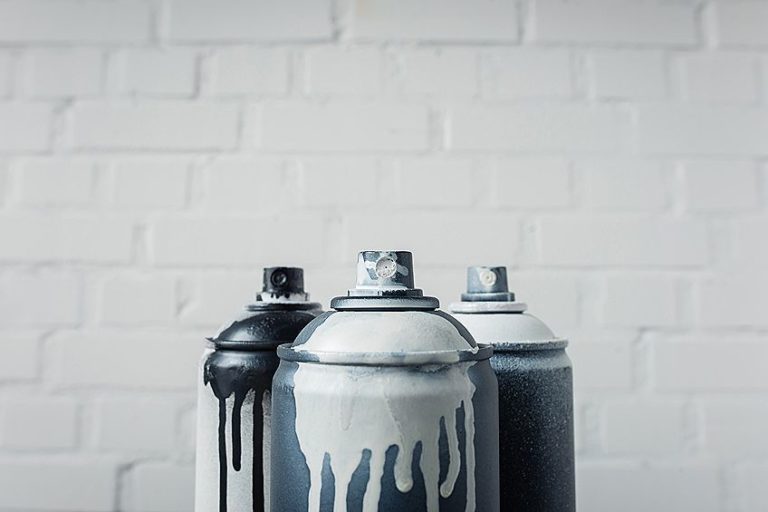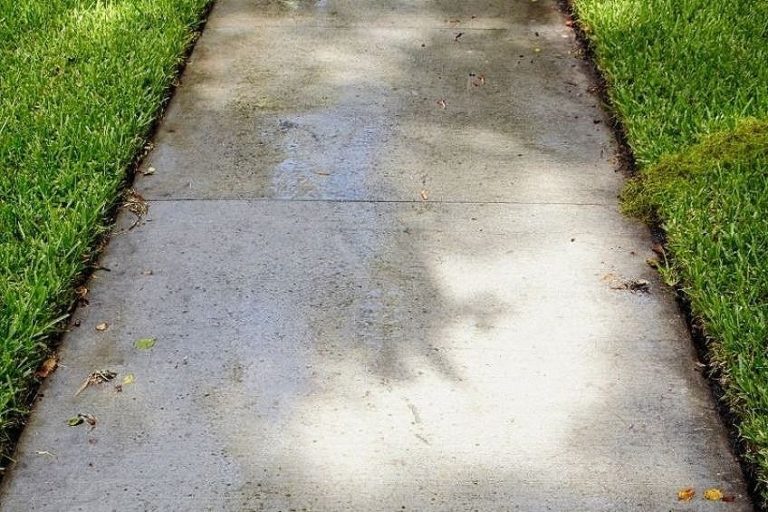How to Get Resin off Hands – Skin-Safe Epoxy Removal
This post may contain affiliate links. We may earn a small commission from purchases made through them, at no additional cost to you.
Epoxy resin is something you can use as a quick fix around the house, or for that fun epoxy craft idea. However, remember that epoxy resin is an industrial adhesive, and as such, is very strong and will dry very quickly. Thus, you do not want to get any of this substance on your hands or anywhere on your skin. No matter how careful you are though accidents do happen, and you can still end up with some epoxy resin on your skin. Fortunately, there are many easy ways on how to remove epoxy from skin and hands.
Table of Contents
How to Get Resin off Hands
When working with epoxy resin, sooner or later you will get some on your hands or skin. This is not a disaster and does not require a doctor. However, it can cause some skin irritation and inflammation, and if not treated properly, could lead to eczema and dermatitis, which could result in blisters, itching, and swelling. You need to know how to remove epoxy from skin easily and safely, and of course, the best and safest method is to use simple soap and water. If this does not work, then just follow the methods listed below.
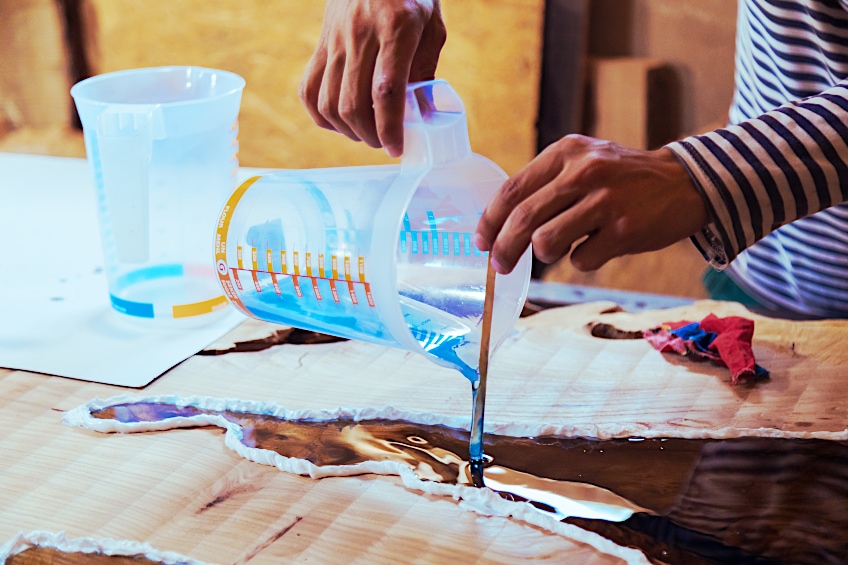
The very first thing you need to do is to remove the epoxy resin before it cures, as the soft resin is much easier to get off. The process of removing resin once it has cured is more difficult and may dry the skin out. Here are some of the methods you can use to remove resin from your skin.
Removing Epoxy Resin Using Vinegar
The use of vinegar to remove the resin from your hands or skin is the best choice, as it is a natural substance and completely safe to use. There are no abrasive chemicals to be anxious about. The type of vinegar you use is not important, and you can use whatever you have in your cupboard. These can include balsamic vinegar, apple cider vinegar, white or brown spirit vinegar.
Take a bowl and pour some of the vinegar into a bowl. Then take a paper towel or a clean cloth and soak it in the vinegar, although you can also use some isopropyl alcohol instead. The use of a small dishcloth is perfect, as it is not too big and can easily be draped over your hand.

Take the soaked cloth and place it over the resin on your hand, making sure you cover the whole resin spot completely. The cloth should be placed on your hand as flat as possible. Leave it for about five minutes and allow the vinegar to soften the epoxy resin. if the cloth starts to dry out, just re-soak and reapply it to your hand. The use of vinegar works well for fresh or cured resin, but the best results are found when the resin is still soft and has not started to harden.
Next, take the cloth and begin to scrub your hand gently using a circular motion until all the resin has been removed from your skin. If you still find small fragments of resin left, it should be soft enough to peel away. If the resin is still too stubborn to remove, soak the cloth again and repeat the process until all the resin is off.
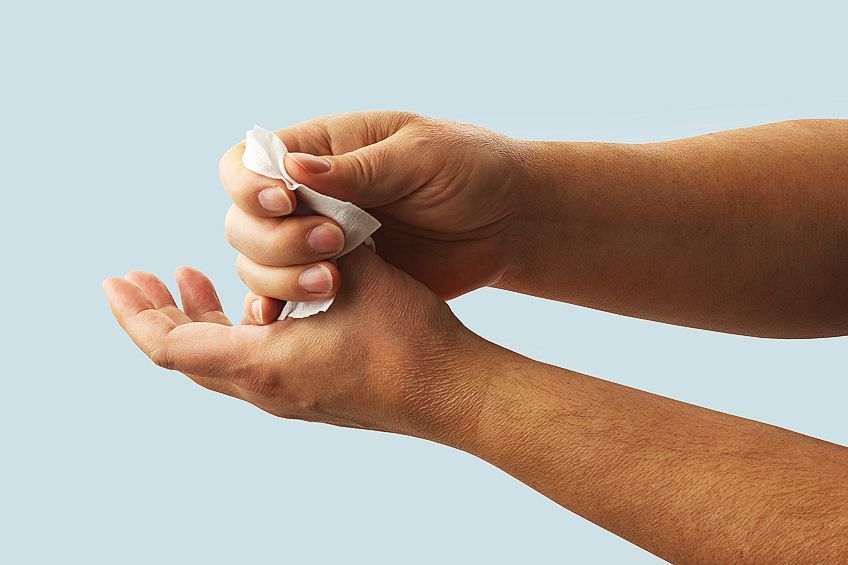
You can now wash your hands by placing some dishwasher liquid in the palm of your hands, then rub them vigorously for about 20 to 25 seconds, making sure you concentrate on the area where the resin was found. Then rinse your hands with some warm water to remove any of the remaining residues from the vinegar and resin. Once you dry your hands, it is recommended that you apply some moisturizer to your skin.
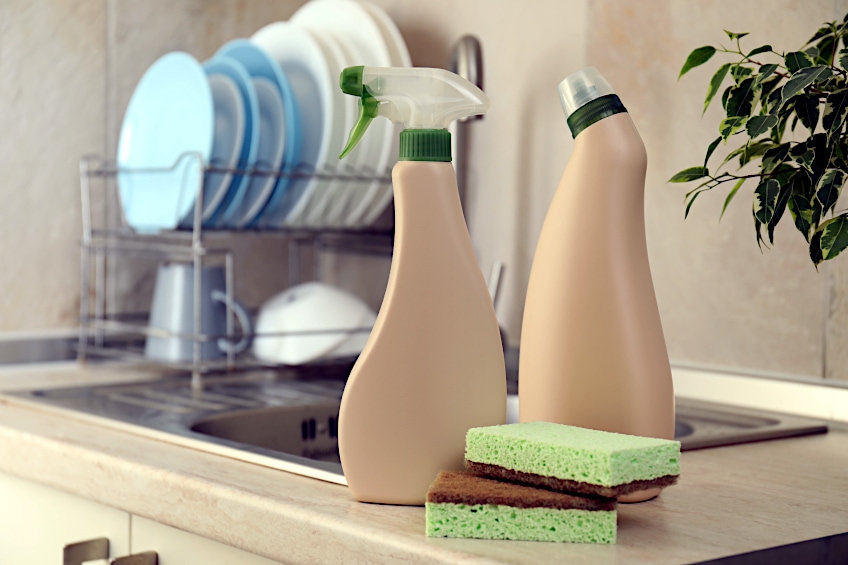
Removing Epoxy Resin Using Acetone
Since acetone has a strong odor, you need to make sure you work outside or in a well-ventilated area inside with doors and windows open to allow proper air circulation. It is also advisable that you wear a mask and keep the acetone from any open flames, as it is highly flammable. For the best results, it is advisable to use 100 percent acetone, but you can also make use of nail polish remover, rubbing alcohol, and paint thinners, but they might not be as effective or safe to use.
Dip a cotton bud or a small section of a paper towel into the acetone, making sure it is not dripping to avoid getting the acetone on your skin. Now rub the acetone into the resin until it becomes soft and is easy to remove. If the resin has already cured, then it can take longer for the resin to become softer. You can dampen the bud or cloth again and apply it to the resin and leave for a while until the resin is easy to peel off.
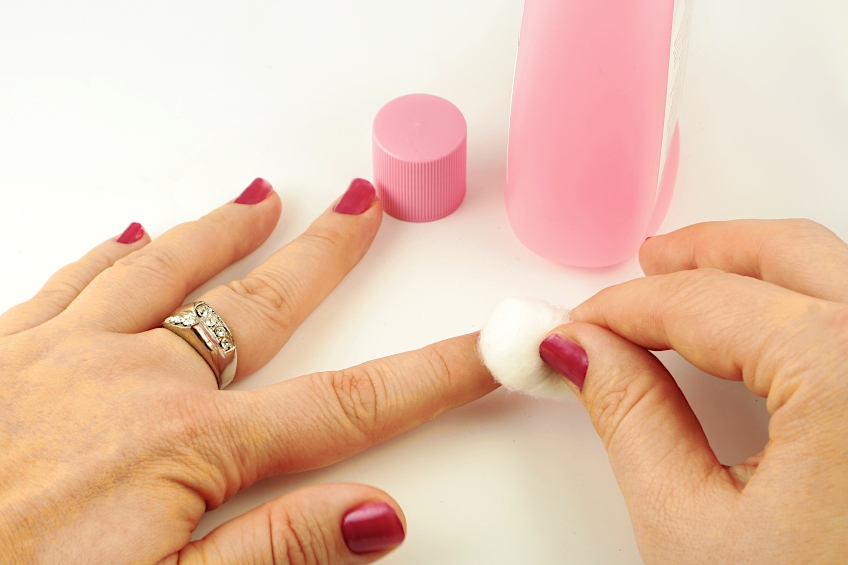
Run some warm water over your hands to remove most of the acetone, then apply some dishwashing liquid and rub it into your hands for about 20 to 25 seconds, and then rinse under some warm water. Since acetone is a harsh chemical and can dry out your skin, you need to apply some moisturizing cream afterward.
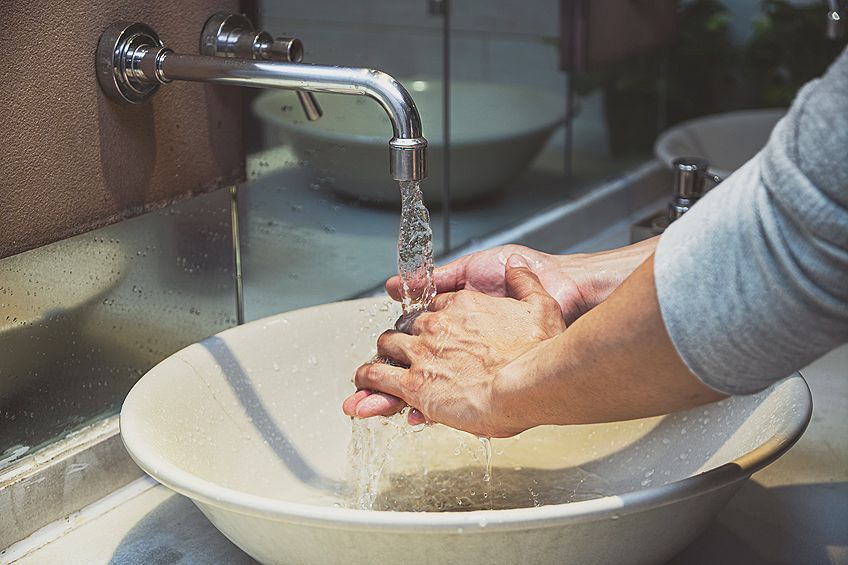
Removing Epoxy Resin Using Waterless Hand Cleaner
You need to use an industrial waterless hand cleaner that is specially designed to remove grease and oil. These are more abrasive than your usual hand soaps, which will not work well at all. Try to find and purchase the waterless hand cleaner that contains citrus, as it is far more effective in removing epoxy resin and is also a lot softer and gentler on your hands.

If the waterless hand cleaner you are using is in liquid form, pour some out onto a clean dry cloth. You also get a gel form, which you can squirt onto the cloth. Now scrub your hand with the cleaner, moving in a circular motion over the resin without being very forceful, until you feel that the resin is beginning to soften. Once it softens, you should be able to peel it off your skin.
Wash your hands in some warm soapy water, making sure you remove all the cleaner, as it is abrasive. Then check to see if the resin is gone from your skin. Many waterless hand cleaners contain natural emollients that will be able to keep your skin supple and soft, but just to be safe, you can apply some moisturizing cream to protect your skin.
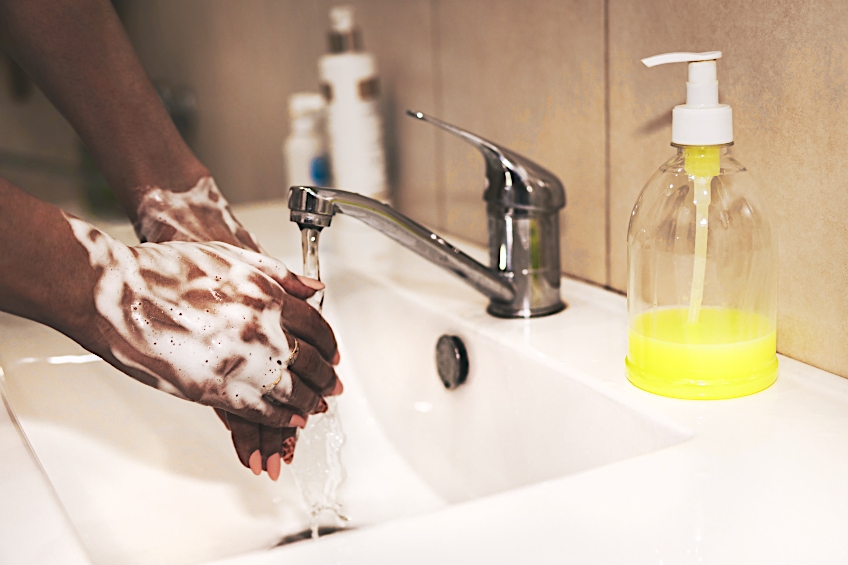
Removing Epoxy Resin Using Baking Soda
Take about one tablespoon of baking soda and place it into your hand. Then add one tablespoon of dishwasher liquid to the baking soda in your hand. You can then scrub your hands over the sink. After a short time, you can rinse your hands under some warm water and repeat the process if the resin is still there.
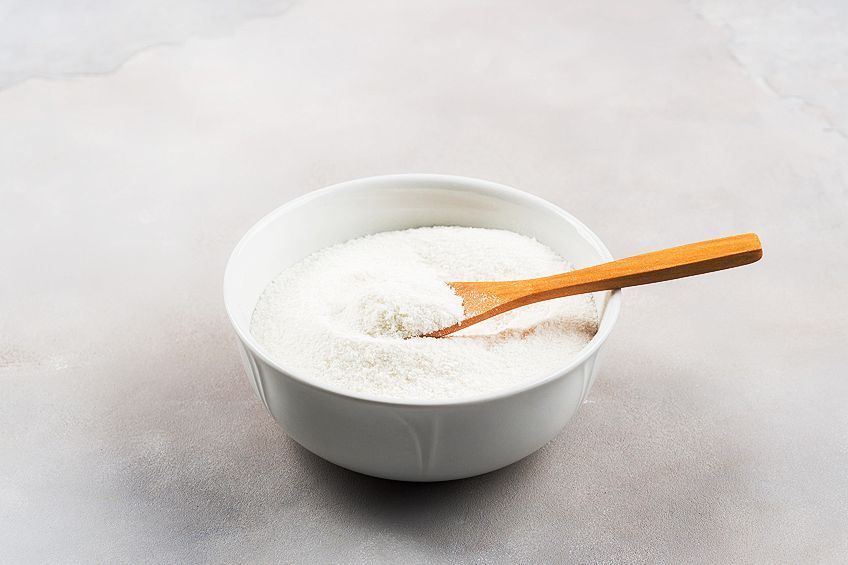
Other Substances for Removing Resin From Skin
There are other substances that you can use to remove epoxy resin from your skin. These are not as aggressive as the ones we have already mentioned. However, these might not be as effective when removing the resin from your skin, especially after the resin has cured.
- Coconut oil, or even ordinary cooking oil
- Shampoo
- Sugar or salt scrubs which you can make yourself
- Baby wipes

Natural Sugar Scrub Recipe
Many people prefer to use natural or less harmful methods for removing the resin from the skin. Most of these materials are easy to come by and you most probably have ingredients lying around at home. Here is a simple and easy sugar scrub recipe you can keep for the next time you mess a little resin on your skin. You can also try substituting the sugar with some coarse sea salt. Combine everything and keep it in a sealed container.
- 500 ml of sugar (white or brown)
- 125 ml of oil (olive or coconut oil)
- Few drops of essential oil (optional)

How to Clean Epoxy Resin from Your Tools and Equipment
We have already discussed how to get epoxy resin off hands and skin, but what about getting it off your tools and equipment. Instead of getting rid of the equipment after you are finished with them, why not try to clean them? This can help save you money, will also reduce waste, and help to save the environment.
Take a paper towel and wipe off as much of the resin from your tools as you can while it is still wet, as the resin gets a bit sticky when it cures, and the paper towel will stick to it. Now use some solvent, like acetone or denatured alcohol, to clean the rest of the resin off. While working, be careful not to get it onto your skin.
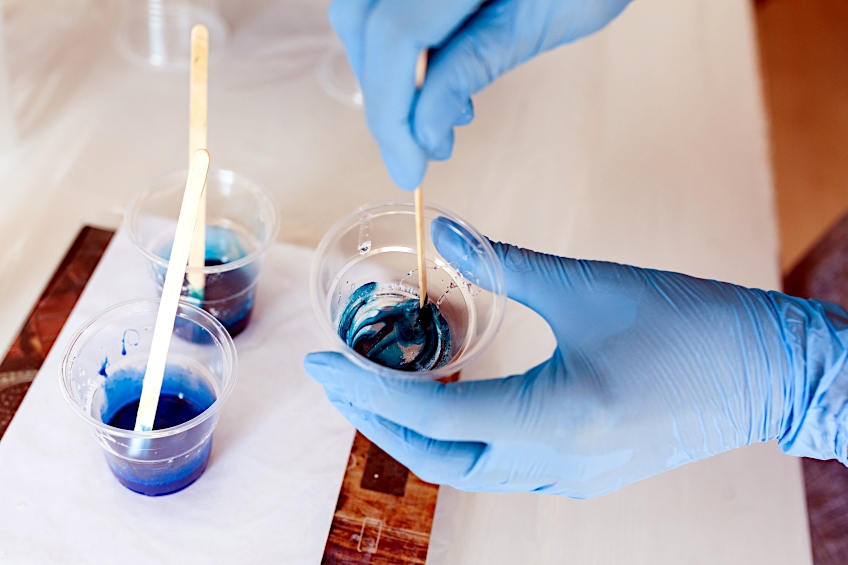
For your plastic cups, just use some warm soapy water, and then stand them upside down on a paper towel to dry. You can also just let the resin cure and then peel it off once it hardens. Another method is to let the resin cure and then flex the plastic cups. This should cause the resin to crack, and you can easily remove it.
Tips and Safety Precautions When Removing Epoxy Resin from Skin
The easiest and quickest way to remove epoxy resin from your hands or skin is to make sure you clean it off as soon as possible before it starts to cure. Once the resin cures, it will then become more difficult to remove. Below are a few more tips when discovering how to get resin off hands.

- When using harsh chemicals, make sure you are in an area that is well-ventilated, where there is adequate airflow
- Prevent it before it happens by using gloves, this way you avoid the epoxy coming into contact with your skin in the first place
- It is always advisable to use a mask, even if you are only using small amounts of harsh chemicals
In this article, we have tried to guide you through the process of how to get resin off hands. We have included many different methods you can use, and we hope these recommendations have been of help to you. Now you can get to the fun part of enjoying your resin project without any worries.
Frequently Asked Questions
How to get Resin off Hands?
There are different methods you can use to get resin off your hands, but the best method is to make sure you clean it off while it is still wet and soft, otherwise, once it cures, it is a lot more difficult to remove. However, to prevent resin from getting on your hands, it is recommended that you wear gloves when working with resin. This will stop it from landing on your hands to start with. If you accidentally get resin on your skin, you can try removing it with some wet wipes or just wash it off with some warm soapy water.
Can Resin Damage Your Skin?
If not removed immediately, it can cause redness, itching, and swelling. It may also lead to some skin allergies if your skin is exposed to resin for long periods. This is why it is important to wear gloves and remove the resin as soon as it comes into contact with your skin.
Is a Mask Necessary When Handling Resin?
If you breathe in the highly concentrated vapor of epoxy resins it can cause respiratory irritation, so we do recommend you wear a respirator mask for safety reasons. A mask is also recommended if you are working with any kind of solvent.
Can Nail Polish Remover Be Used to Remove Resin From Skin?
Yes, as nail polish remover contains acetone, it can be used to remove resin from the skin. This is a great idea, as most of us already have nail polish remover at home and there is no need to go out to purchase acetone. Even nail polish remover gives off fumes, so work with it where there is enough air circulation.
Larissa Meyer is a 32-year-old mother from Michigan and creative spirit since childhood. Her passion for painting and drawing has led her to an education as an illustrator and a career as a freelance graphic designer. She has a Bachelor of Fine Arts in Illustration and a degree in Graphic Design. Larissa is a talented artist who is able to master a wide range of styles and techniques to bring her artistic vision to life. Her greatest passion is currently fluid painting and epoxy resin art. Larissa’s love for art and her knowledge and experience in illustration make her the perfect Creative Director for our fluid-painting.com team. She is the creative head of our team and shares her passion and knowledge with our community through articles and tutorials.
As a mother of a 2-year-old daughter, Larissa also understands the importance of fostering creativity in early childhood. She uses her experience and knowledge to help other parents inspire their children and develop their artistic skills as well.
Learn more about Larissa Meyer and about us.


